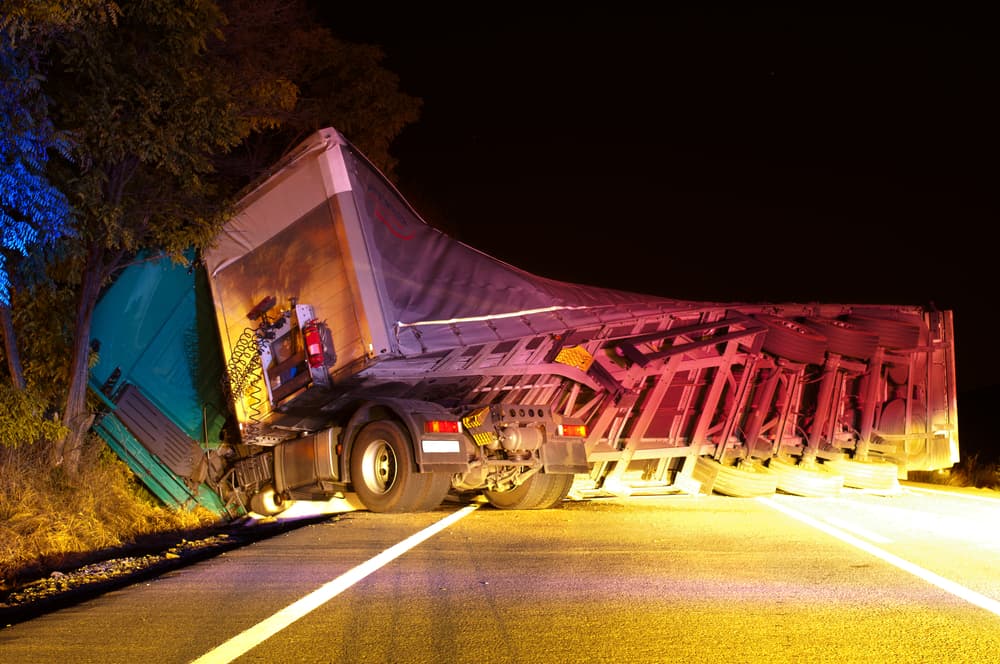Have you or someone you know been in a truck accident? It’s a tough situation, and figuring out what to do next can feel overwhelming. One of the most important steps is understanding how long you have to file a lawsuit seeking compensation for your injuries and damages.
This period is called the statute of limitations, and you must know about it to protect your rights.
Never take any chances; consult a truck accident lawyer in Madison immediately to ensure you never miss any critical deadlines.
What is the Statute of Limitations?

When discussing the statute of limitations, we’re discussing a very important rule that tells us how long we have to start legal action after something happens, like a truck accident.
Imagine it like a big clock that starts ticking the moment the accident occurs. This clock doesn’t run forever; it only gives you a certain amount of time to ask for help through the court system if you suffered an injury or your property has been damaged.
The tricky part is that this clock doesn’t tick the same way everywhere. Each state has its own set of rules about how long the clock ticks for truck accidents. You might have just one year to start your legal action in some places, which isn’t enough time. In other states, you can have up to six years, which gives you more time to decide what to do.
What Happens if You Wait Too Long?
When you’re in a truck accident, a clock starts ticking. This clock isn’t about healing from injuries or fixing what’s broken. It’s also about the time you have to ask for help through the legal system. If you wait too long to file a claim after a truck accident, you can find yourself in a tough spot.
Missing the deadline for filing a claim is a big deal. It’s not just about missing out on a chance to tell your side of the story. It’s also about what you might lose.
Medical bills can pile up after an accident. You may require funds to repair your car or cover transportation costs if your car is inoperable. Sometimes, accidents can leave you feeling down or in pain for a long time. Money from a claim can help with all these things.
But if the deadline passes, it’s like a door closing. This door is what connects you to the possibility of getting help through the legal system. Once it closes, it’s hard, if not impossible, to open again. This is why understanding those deadlines is so important. It helps ensure you take steps to keep that door open at the right time.
That’s why acting quickly and not waiting too long is so important. It’s not just about the law or rules. It’s about making sure you have the chance to get the support you need after something as serious as a truck accident. This gets you back on your feet, fixes what’s broken, and allows you to move forward after the accident.
How to Discover the Time Limit for Filing a Truck Accident Claim

After a truck accident, one of the first steps you should consider is finding out how long you have to file a claim. Timely action is crucial, as statutes of limitations vary by jurisdiction, and exceeding the specified time limit can jeopardize your ability to seek compensation.
Consulting a truck accident lawyer promptly can get you to understand and adhere to the relevant deadlines, ensuring that you take the necessary steps within the prescribed timeframe to protect your legal rights and maximize your chances of a successful claim.
The statute of limitations isn’t the same everywhere. It changes depending on the state in which the accident occurred. You might have a year in some places, while in others, you can have up to six years. But don’t let this time frame make you too comfortable. The sooner you discover the deadline, the better off you are.
So, how do you determine the statute of limitations for a truck accident claim in your state? Here are a few steps you can take:
- Do a Quick Internet Search: The Internet is a great place to start. You can look up “statute of limitations for truck accidents in [your state]” to get a general idea. But remember, while the internet has a lot of information, not everything you read online is 100 percent accurate.
- Check State Government Websites: Many state government websites have specific sections about laws and regulations, including the statute of limitations for different legal claims. These sources are more reliable than general internet searches because they are official statements from the state.
- Contact a Local Lawyer: If you’re finding it hard to get a clear answer or just want to be extra sure, talking to a truck accident lawyer can be helpful. A truck accident lawyer will know exactly how long you must file a claim in your state. Plus, they can give you advice on what steps to take next.
Understanding the statute of limitations is crucial, setting the clock ticking on your opportunity to seek justice and compensation. Finding the limit promptly gives you the best chance to prepare your case properly, gather necessary evidence, and make informed decisions about proceeding within legal constraints. Time is of the essence in securing the compensation you deserve.
Gather Evidence
After a truck accident, one of the most important steps is to collect as much information as possible about what happened. The evidence you gather is a part of the puzzle that can help show the full picture of the accident. Think of it as being a detective in your case. You’re looking for clues that can help explain how the accident happened and who or what caused it.
First, if you can, take photos of the accident scene right after it happens. This includes pictures of your vehicle, the truck, other cars, and the surrounding area. Photos can show things like vehicle damage, tire marks on the road, and the position of the cars after the crash. They can prove what happened by capturing the scene exactly as it was.
Next, getting copies of your medical records is important if you suffered an injury in the accident. These records are like a detailed report of your injuries and the needed treatment. They show how serious your injuries were and how they affected you. Medical records can also link your injuries directly to the accident, proving that the crash caused them.
Witness statements are another key piece of evidence. Sometimes, other people who saw the accident can provide details you might not remember or have not seen. They can describe how the accident happened from a different point of view, which can be very helpful. Talking to witnesses and getting their contact information means you can reach them later if you need their help explaining what they saw.
Collecting evidence might sound like a lot of work, especially when dealing with injuries. But each piece of information you gather can show what happened and prove your side of the story.
Plus, solid evidence can make it easier when you’re talking to insurance companies or decide to seek legal help from a truck accident lawyer. It’s all about ensuring you have the proof you need to support your case and get the support you deserve after a truck accident.
Get Legal Help

Getting help from a truck accident lawyer can make a substantial difference in your case. Their experience navigating legal complexities enhances your chances of securing fair compensation and a successful resolution.
Think of a lawyer as a guide who can guide you through the legal system. A truck accident lawyer can look at all the accident details and give you advice that fits your situation.
One of the biggest reasons to get legal help is to determine who is liable for the accident. In truck accidents, figuring out who’s at fault can be more complicated than car accidents.
Sometimes, it’s not just the truck driver who might be responsible. The company they work for, the people who loaded the truck, or even the truck manufacturer can also be part of the problem. A good lawyer can help identify all the parties involved and determine who should be held accountable.
Another important job of a lawyer is to ensure you’re treated fairly, especially by insurance companies. Insurance companies are making money; sometimes, they might try to settle your claim for less than what it’s worth.
A lawyer can protect your rights, ensuring the insurance companies don’t exploit you. They’ll work to get you a fair deal that covers your medical bills, any damage to your car, and compensation for any pain and suffering you’ve experienced because of the accident.
Finally, a lawyer can handle your legal paperwork and deadlines. A lawyer will ensure all your paperwork is filed on time so you don’t miss any important deadlines. A truck accident attorney will handle the heavy lifting, allowing you to focus on improving.
In short, getting help from a lawyer after a truck accident can take a lot of the stress and worry off your shoulders. A truck accident lawyer guides you through the legal process, protects your rights, and works hard to ensure you get the support and compensation you deserve.
If you’re feeling lost and unsure about what to do after a truck accident, reach out to a knowledgeable lawyer and get the support you need.
Looking for Guidance? Contact a Truck Accident Attorney

Talk to a truck accident lawyer after a truck accident and to learn about your next steps. A truck accident lawyer can explain your options, the deadlines for filing a claim, and how to move forward.
Don’t wait too long. Protect yourself and your future. Seek timely medical attention, document the accident scene, and consult personal injury attorney to significantly strengthen your position in pursuing just compensation for your damages.

 (608) 448-6242
(608) 448-6242





